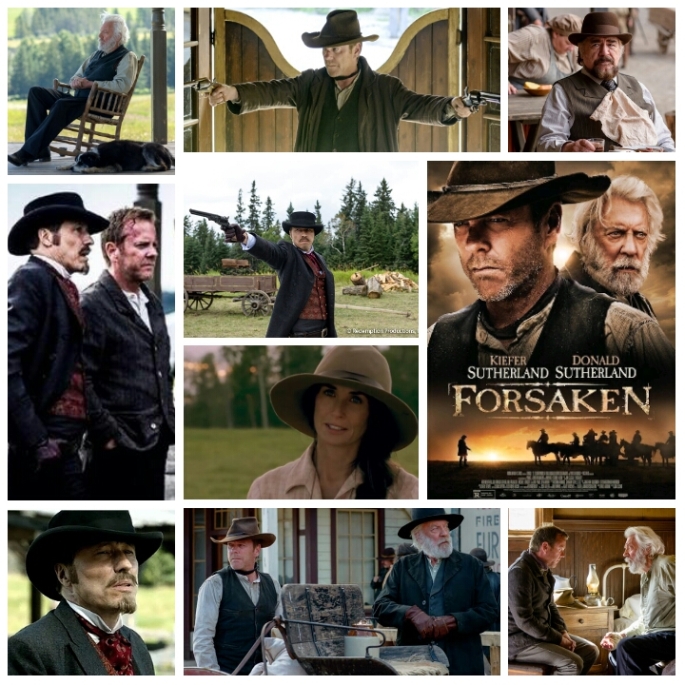It’s refreshing that in an age populated by revisionist westerns and snazzy new takes on the ancient genre, some filmmakers just want to play it straight and deliver a good old oater without any newfangled bells and whistles. Jon Cassar’s Forsaken does just that, arriving a few years late (turbulent post production issues) but in modest, simple form, here to tell the age old tale of one man who stands up to some evil frontier bankers with stoic heroism. Kiefer Sutherland is John Henry Clayton, a man who has been away from his quiet hometown for nearly a decade. Following a traumatic stint in the war, circumstance led him into the life of the gunfighter. His unannounced return home stirs up old wounds in his preacher father (Donald Sutherland) who cringes in the very presence of his violent aura. John has thrown down the guns and sworn never to pick them up again, but we all know that just ain’t true, and when he meets a certain group of unsavory dudes in town, he becomes a time bomb of righteous anger that’s liable to go off any time. He spends some time mourning his mother and reconnecting with a lost love (Demi Moore), until the inevitable conflict brews. Corrupt banker James McCurdy (Brian Cox) is buying up farms and forcing families who don’t want to sell off their land, using despicable methods carried out by his two goons, vicious Frank Tillman (Aaron Poole) and mercurial ‘Gentleman’ Dave Turner (Michael Wincott). Tensions arise and everyone finds themselves headed for an unavoidable and blistering conclusion. Kiefer always has a jagged rage simmering just below the surface, which is what made him so perfect as Jack Bauer, another time bomb. He’s downright implosive here, delivering the best work I’ve ever seen him give. He’s got a touching scene with his father in which he goes to places I didn’t know he was capable of in his work. Donald is quiet, resentful and compassionate, wrestling internally to keep his serenity in the face of injustice. Cox always puts on a good show as the villain, and he’s exactly what he needs to be here: beaurocratic menace with just a dash of swagger. It’s Wincott who steals the show though, with the best work in the film. He inhabits Dave (and his incredibly dapper costume) with a relaxed, lupine calm, punctuated by sudden bursts of danger and always presided over by the midnight black, raspy croon of a voice that makes him so special. He jaunts along the line between villain and sympathetic antihero so well, the only character in the film to shirk the archetypes, and I was please try reminded of Jason Robard’s Cheyenne from Once Upon A Time In The West. His best work in a while as well, but then he’s always perfect. The film is refreshingly violent in its gunplay, with an earned brutality that never feels gratuituous, and always satisfying. The production took place in wildest alberta, a trip worth the taking for the breathtaking scenery we get to feast on, especially in an opening credit sequence that is very reminiscent of Eastwood films of yesteryear. It’s a landmark in the sense that although both Kiefer and Donald have been in the same film before (Joel Schumacher’s underrated A Time To Kill) they never have shared the same frame until now. Trust me, it was worth the wait. They are both excellent, along with their peers in a simple, honest to goodness Western film that should please fervent fans of the genre and moviegoers alike.
-
Subscribe
Subscribed
Already have a WordPress.com account? Log in now.
